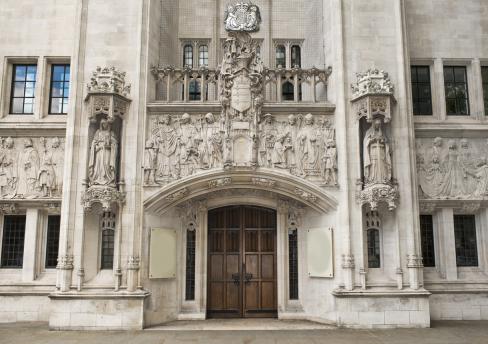
One of the hats I wear is the lead commercial litigation tutor on the diploma in legal practice at the University of Edinburgh.
The course is focussed on contract law and the students deal with a fictional case based on a complex contract for the pricing of electricity. Every year the students start off bewildered by the factual complexity, thinking that they will never be able to debate the case, let alone understand it. By the end of the course (with the odd exception!) the students come to realise that even the most complicated factual situation can often be resolved with the logical application of general principles of contract law.
The outbreak of coronavirus has meant that we are all now faced with a factually complicated and deeply uncertain situation. All businesses and individuals are affected and it will be for us as lawyers to help everyone understand their contractual rights and obligations in these trying times.
Express terms
The starting point is the express terms of the contract. Contracts are interpreted and understood primarily by giving the words used their natural and ordinary meaning. The words must then be put in their factual, contractual and commercial context. The factual background to the contract can only be taken into account insofar as it is relevant to understand the parties' intentions. The contractual context means considering any particular terms in light of the contractual as a whole. Contracts can only be understood as an entire document. Looking at particular clauses in isolation is rarely of assistance. Finally, commercial sense helps in interpreting a contract. If there is ambiguity in the wording of the contract asking the question - does this interpretation make commercial sense - can be of assistance. Too much reliance on commercial common sense though is, as the courts have repeatedly said, a bad thing. One judge's or lawyer's idea of what is commercially sensible may be very different to the commercial sense of the parties to the contract.
Force majeure provisions
One of the express clauses which will need careful consideration over the coming weeks and months are force majeure clauses. Traditionally, force majeure clauses tended to deal with acts of God which meant that the contract couldn't be performed. In modern commercial contracts, that these clauses tend to be used in a wider sense to allow parties to escape their contractual obligations when man made impediments are in the way of performance such as labour disputes, strikes, civil unrest or, indeed, the outbreak of an epidemic such as the coronavirus. Whether or not the force majeure clause in any contract covers the coronavirus will be a matter of the interpretation of the provisions of the contract. Where businesses are contracting with consumers, such clauses will be subject to the "fair and reasonable" test found in the Unfair Contract Terms Act 1977.
Implied terms
The important thing about any contract is what the parties objectively intended to agree. Occasionally, the parties' intention is not properly reflected in the express written terms. In these circumstances, the court can imply terms into a contract. The test for implication is a high one because it is generally considered that is parties had wanted to agree something it would have been agreed expressly. So, before a term is implied into a contract, the court will want to ensure that it is either "so obvious that it goes without saying" or that it is "necessary in order to give the contract business efficacy". So can a force majeure clause be implied into a contract? The short answer to that is "no". The reason is partly because the parties could have agreed it expressly and partly because the law provides a separate remedy at common law where performance is impossible.
Frustration
That remedy is frustration. When I say "frustration" of course, I don't mean it in the normal sense (i.e. "I'm frustrated that I'm having to work at home because of the coronavirus"). Rather, in the legal context it is the term used when performance of the contract becomes impossible or the contract's purpose no longer exists because of a supervening event. One obvious historical example of frustration of contracts is an outbreak of war. Contracts with the enemy, for example, would generally be considered to be frustrated. Other examples of frustrating events would be death of a contracting party, changes in the law or the destruction of the subjects of the contract.
So would the outbreak of coronavirus lead to the frustration of a contract? That depends on the nature of the contract that you have and the effect of the outbreak (or the government measures introduced by it) on it. It may be that, if government measures make performance illegal or the outbreak makes performance impossible, then the contract will have been frustrated.
Practical Steps
Take advice. Exercising any of the options referred to in this article is an extreme step and not one that ought to be taken lightly. If you successfully argue that a contract is frustrated or a force majeure clause applies then further performance of the contract is not necessary by either party. In many cases at the moment, what parties will be looking for is for their contractual obligations to be put on hold pending the return to business as usual, not the termination of the contract completely. In these circumstances agreeing a formal variation of the contract would be a better option than terminating it on grounds of frustration. Contracting parties will need to work together to get through this crisis.
On that note, I end with a non-legal point. Business is about commerciality but also about relationships. For that matter, there are plenty business to consumer contracts that are about relationships as well. The ability to trigger termination provisions of a contract or the right to escape your contractual obligations doesn't mean that you should seek to do so. When we are all allowed to shake hands again and get close enough to look each other in the eye, let's make sure that we can all do so proud of the way in which we conducted ourselves during these difficult times.
The content of this webpage is for information only and is not intended to be construed as legal advice and should not be treated as a substitute for specific advice. Morton Fraser LLP accepts no responsibility for the content of any third party website to which this webpage refers. Morton Fraser LLP is authorised and regulated by the Financial Conduct Authority.









